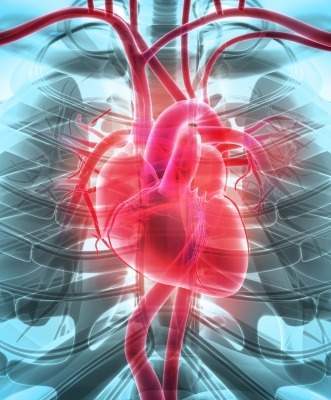Cardiva Medical has announced positive results of the Ambulate pivotal study assessing the Vascade MVP system compared to manual compression for multi-vessel closure following electrophysiology procedures.

Image: Cardiva announces positive results in VASCADEMVP pilot study. Photo: Courtesy of yodiyim/FreeDigitalPhotos.net.
Cardiva said the vascular closure system met its endpoints compared to manual compression in the study, which is the first randomized pivotal trial of vessel closure carried out exclusively by electrophysiology physicians.
In the randomized, controlled clinical trial, underwent arrhythmia ablation procedures were carried out in 204 patients by 28 physicians at 13 sites throughout the US.
All patients had several (three or four) mid-bore (6-12 Fr inner diameter sheath) femoral venous access sites, and were randomized into one of two groups.
The treatment group had all sites closed with the Vascade MVP System and the control group had all sites closed using manual compression, which is the current standard of care.
Patients were enrolled with both radiofrequency and cryo energy sources used in their procedures. Principal investigators include Texas Cardiac Arrhythmia Institute executive medical director, Andrea Natale, Stanford University School of Medicine associate professor Mintu Turakhia and Steve Compton of Vascular Institute Alaska Heart.
Natale said: “The feedback from our patients and staff was extremely positive with VASCADE MVP during the study. Patients with previous procedures noticed a significant improvement in their level of comfort due to the much shorter bed rest time, and the time saved overall enabled us to implement a new more efficient workflow in the hospital.
“Additionally, there was a substantial decrease in the use of post-procedural pain medications in patients receiving the VASCADE device. This type of innovation will be particularly important as demand for these procedures continues to grow.”
When compared to manual compression, the Vascade MVP system is claimed to have met all the primary and key secondary endpoints.
Cardiva Medical stated that the Vascade MVP arm showed a median reduction of 3.9 hours (2.2 hours vs. 6.1 hours, p-value < 0.0001).
The Vascade MVP arm showed a mean reduction of 3.7 hours in the total time from completion of the ablation procedure to the patient walking. This included the time to achieve vessel closure (3.1 hours vs. 6.8 hours, p-value <0.0001).
It reduced the mean time for patients to be deemed eligible for discharge by 3.4 hours (3.1 hours vs. 6.5 hours, p-value < 0.0001). The patient-reported level of satisfaction with the duration of bed rest was 63% higher in the VASCADE MVP arm (8.3 score out of 10 vs. 5.1 out of 10, p-value <0.0001).
58% fewer patients in the Vascade MVP arm used opioid-class pain medications following their procedure (15% of patients vs. 36% of patients, p-value 0.001).
Cardiva Medical CEO John Russell said: “Vascade MVP and the Ambulate pivotal study represent Cardiva’s commitment to innovation that improves the post-procedure experience for patients undergoing cardiac ablation.
“The impressive results reported today mark a major milestone in that effort. We are grateful to the investigators, their research teams, and their patients for making the Ambulate study possible.”
